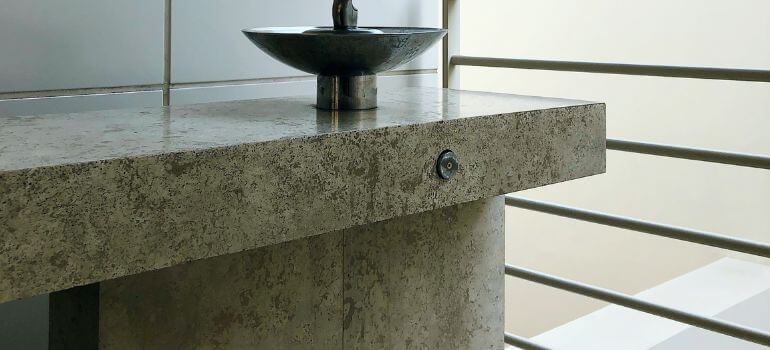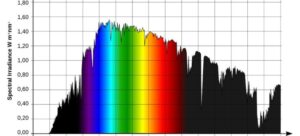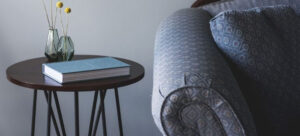When it comes to choosing the right surface material for your countertops, tables, or other furniture, the decision often boils down to Formica vs. Corian. Both materials offer unique advantages and have their specific applications, making it crucial to understand the nuances before making a decision.
What is Formica?
Formica is a laminate material composed of layers of paper or fabric impregnated with resin and fused with heat. Known for its affordability and diverse design options, Formica has been a popular choice for various surfaces.
Understanding Formica Composition
Formica’s composition involves layers of paper or fabric saturated with resin, creating a durable and versatile material. The layers are then compressed and heated to form a solid surface.
Pros of Choosing Formica
- Affordability: Formica is budget-friendly, making it an excellent choice for cost-conscious consumers.
- Design Variety: With an extensive range of patterns and colors, Formica allows for creative customization.
- Ease of Installation: Formica is relatively easy to install, whether you opt for professional assistance or a DIY approach.
Cons of Choosing Formica
- Prone to Scratches: While durable, Formica can be susceptible to scratches, especially when exposed to sharp objects.
- Not Heat-Resistant: Extreme heat can damage Formica surfaces, requiring caution with hot pans or dishes.
What is Corian?
Corian, on the other hand, is a solid surface material developed by DuPont. It consists of acrylic polymer and natural minerals, offering a seamless and visually appealing option for various applications.
Understanding Corian Composition
Corian is a solid surface material composed of acrylic polymer combined with natural minerals. This composition results in a non-porous and homogeneous surface.
Pros of Choosing Corian
- Seamless Integration: Corian allows for seamless installations, creating a visually pleasing and smooth surface.
- Durability: Corian is highly durable, resistant to scratches, stains, and impact.
- Hygienic Properties: Being non-porous, Corian is resistant to mold, mildew, and bacteria, ensuring a hygienic environment.
Cons of Choosing Corian
- Higher Cost: Corian tends to be more expensive than Formica, making it less budget-friendly.
- Professional Installation Required: Achieving a flawless finish with Corian often requires professional installation.
Aesthetics and Design Options
Formica Design Range
Formica boasts an extensive design range, offering options that mimic the appearance of natural materials such as wood, stone, and metal. The variety allows for versatile applications, catering to different aesthetic preferences.
Corian Design Variety
Corian provides a diverse array of design options, including solid colors and patterns. While not as extensive as Formica, Corian’s design variety still offers plenty of choices for creating a stylish and personalized space.
Matching Your Style and Preferences
Choosing between Formica and Corian involves assessing your style preferences and the overall aesthetic you want to achieve. Formica’s wide range is ideal for those seeking budget-friendly options with creative design possibilities, while Corian offers a more seamless and sophisticated look.
Durability and Longevity
Formica Durability
Formica is durable and can withstand regular use. However, it may be more prone to scratches, especially in high-traffic areas. Proper care and maintenance are essential to prolong its lifespan.
Corian Longevity
Corian is known for its exceptional durability. Resistant to scratches and stains, Corian surfaces are ideal for busy households. With proper care, Corian can maintain its pristine appearance for many years.
Factors Influencing Lifespan
The lifespan of both Formica and Corian surfaces depends on factors such as usage, maintenance, and the specific environment. Considering these factors can help you make an informed decision based on your lifestyle and preferences.
Maintenance and Cleaning
Formica Cleaning Tips
Maintaining Formica surfaces involves regular cleaning with a mild detergent and a soft cloth. Avoid abrasive cleaners and abrasive pads to prevent damage to the surface. Promptly clean up spills to prevent staining.
Corian Maintenance Guide
Corian surfaces are easy to clean with a mild soap and water solution. Due to its non-porous nature, Corian is resistant to stains. Routine cleaning helps preserve its appearance, making it a low-maintenance option.
Ease of Care Comparison
While both Formica and Corian are relatively easy to care for, Corian’s non-porous nature gives it an edge in terms of stain resistance. Consider your lifestyle and the level of maintenance you are comfortable with when making a decision.
Cost Considerations
Formica Cost Analysis
Formica is known for its affordability, making it an attractive option for budget-conscious consumers. The lower upfront cost allows for more flexibility in budget allocation for other aspects of your project.
Corian Budget Considerations
Corian, being a premium solid surface material, comes with a higher price tag. While the initial investment is greater, the durability and longevity of Corian may justify the cost for those prioritizing long-term value.
Balancing Quality and Price
The decision between Formica and Corian often involves finding the right balance between quality and price. Assess your budget constraints and long-term goals to determine the most suitable option for your specific needs.
Installation Process
Formica Installation Steps
Installing Formica is a relatively straightforward process that can be tackled as a DIY project or entrusted to professionals. The ease of installation contributes to its popularity among those looking for a cost-effective solution.
Corian Installation Overview
Achieving a seamless finish with Corian typically requires professional installation. The process involves precise measurements, cutting, and joining to create a visually appealing and flawless surface.
Hiring a Professional vs. DIY
The choice between hiring a professional installer and opting for a DIY approach depends on your skill level, the complexity of the project, and your desire for a flawless finish. Formica’s simplicity makes it more DIY-friendly, while Corian may benefit from professional expertise.
Environmental Impact
Formica’s Environmental Footprint
Formica, being a laminate material, raises questions about its environmental impact. However, modern Formica production often incorporates sustainable practices, including the use of recycled materials.
Corian’s Sustainability Features
Corian is recognized for its commitment to sustainability. The material is Greenguard Certified, indicating low chemical emissions. Additionally, Corian can be recycled, contributing to environmental responsibility.
Making an Eco-Friendly Choice
If environmental considerations are a priority, both Formica and Corian offer options aligned with sustainable practices. Look for specific certifications and recycled content information to make an informed choice.
Customer Reviews and Satisfaction
Formica User Experiences
User reviews provide valuable insights into the performance of Formica surfaces in real-life scenarios. Pay attention to reviews related to durability, scratch resistance, and overall satisfaction to gauge the practicality of Formica for your needs.
Corian Customer Feedback
Corian users often praise the material for its durability, seamless appearance, and resistance to stains. Explore user feedback to understand how Corian performs in various environments and applications.
Insights from Real Users
Considering the experiences of real users can help you anticipate how Formica or Corian will perform in your specific use case. Look for reviews from individuals with similar lifestyle and usage patterns to make a more informed decision.
Resale Value
Formica in Real Estate
Formica surfaces may be perceived as more budget-friendly, but their appearance and durability can still contribute positively to a property’s value. Highlighting the benefits of Formica during real estate transactions can be advantageous.
Corian’s Impact on Property Value
Corian’s premium quality and durability can enhance a property’s perceived value. If you are considering the long-term investment potential of your property, Corian surfaces may offer a competitive edge.
Choosing for Long-Term Investment
When deciding between Formica and Corian, consider your property’s long-term investment potential. While Formica is a practical and budget-friendly choice, Corian’s premium qualities may appeal to those seeking a higher-end aesthetic.
Innovations and Technological Advancements
Formica’s Technological Features
Formica continues to evolve with technological advancements, introducing features like improved scratch resistance and enhanced durability. Stay informed about the latest innovations to make the most of Formica’s capabilities.
Corian’s Cutting-Edge Advancements
Corian remains at the forefront of solid surface technology. Recent advancements may include enhanced colors, improved texture options, and innovations in manufacturing processes. Explore these advancements to ensure your choice aligns with the latest trends.
Staying Updated with Trends
Whether you opt for Formica or Corian, staying updated with the latest trends and technological advancements ensures that your chosen surface remains relevant and functional for years to come.
Comparative Analysis
Formica vs. Corian: Head-to-Head Comparison
Comparing Formica and Corian involves assessing key factors such as cost, aesthetics, durability, and maintenance. A comprehensive analysis helps you make a decision based on your priorities and preferences.
Identifying Key Differences
While both materials offer quality surfaces, key differences exist. Formica excels in affordability and design variety, while Corian stands out in terms of durability and seamless integration. Identify the factors most important to you to make an informed choice.
Choosing Based on Specific Requirements
The decision between Formica and Corian ultimately depends on your specific requirements. If budget and creative design options are crucial, Formica may be the better fit. For those prioritizing durability and a premium aesthetic, Corian could be the ideal choice.
Decision-Making Tips
Assessing Your Needs
Before making a decision, assess your needs and priorities. Consider factors such as budget, design preferences, maintenance expectations, and long-term goals to guide your choice between Formica and Corian.
Weighing the Pros and Cons
Carefully weigh the pros and cons of Formica and Corian based on your assessment. Create a checklist of must-have features and deal-breakers to streamline your decision-making process.
Making an Informed Decision
Armed with information on Formica and Corian, make an informed decision that aligns with your vision for your space. Your chosen surface material should not only meet practical requirements but also contribute to the overall aesthetic and functionality of your environment.
Conclusion
Choosing between Formica and Corian involves a thoughtful consideration of various factors, from budget constraints to aesthetic preferences and long-term investment goals. By weighing the pros and cons and understanding the unique qualities of each material, you can confidently make a decision that enhances the functionality and appeal of your space.
FAQs
Formica is a durable material but may be prone to scratches in high-traffic areas. Consider your usage patterns and the level of wear and tear expected.
Yes, Corian surfaces can be repaired if damaged. Professional technicians can seamlessly restore the material, ensuring a like-new appearance.
While Formica offers a wide range of design options, there may be limitations compared to materials like Corian. Assess the design variety to ensure it aligns with your preferences.
Regular cleaning with a mild soap and water solution is usually sufficient to maintain the appearance of Corian surfaces. Avoid abrasive cleaners for optimal results.
Formica is more DIY-friendly due to its straightforward installation process. Corian may benefit from professional installation for a flawless finish.



